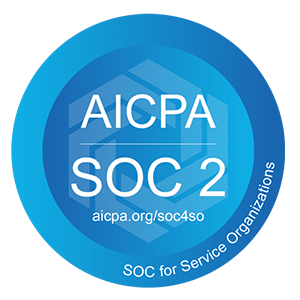Remote sales closers or traditional sales reps? The battle between the two roles can prove confusing and challenging, especially for businesses that rely on well-implemented sales processes to achieve targets. With the human resource industry adopting a more flexible and remote approach, sales positions have not been left behind.
Hiring remote sales closers is not just a trend for companies. It is a strategic move to enforce more action-oriented and targeted sales processes that save time and boost revenue. In this article, we explore the two roles and the significance they hold for businesses. We also analyze their impact on businesses in terms of revenue generation.
Remote Sales Closers vs Traditional Sales Reps
Traditional sales reps manage the entire sales cycle from lead generation to closing deals, often through in-person interactions. They identify and reach out to potential customers, nurture relationships, and make physical presentations on products and services. Traditional salespeople are found mostly in industries that require face-to-face interactions, such as retail businesses like skincare.
On the other hand, remote closers specialize in finalizing sales transactions through virtual communication, either via phone, video conferencing, or online platforms, by conducting presentations, identifying customer needs, handling objections, and negotiating terms with customers to close deals. They operate in high-ticket sales such as coaching, consulting, real estate, and software sales.
What differentiates the two roles?
The distinction between these two positions is as clear as their titles. While traditional reps handle the whole process from seeking and identifying potential leads to closing deals, remote closers focus on concluding deals and work with already prequalified leads.
The Difference Between Remote Sales Closers and Traditional Reps for Businesses
With the sales landscape experiencing rapid growth, these two roles remain key in driving revenue for businesses. While they may seem similar on the surface, they serve distinct functions, especially in sales approach, closing deals, and impact on a business’s operations. Here are some key differentiating factors between the roles.
1. Position Objective
The primary goal for remote sales closers is to close on leads who have shown interest or gone through some part of the sales funnel. They step in towards the end of the funnel to handle any customer hesitations, negotiate terms, and push the deal to the finish line.
In-person sales reps work across the entire sales process, prospecting, qualifying, pitching, and closing on deals. The handle cold leads, perform outbound calls, and handle leads from the first stage to the last stage of the sales funnel.
2. Work Environment
Traditional reps often operate within a physical setup and a specific region. Their work mainly involves face-to-face meetings, site visits, industry events, and office visits. While this position proves efficient for B2B sales, this model is less scalable in a digitally transforming world.
On the other hand, remote sales closers work entirely online via platforms such as Zoom, phone, and other digital communication tools. They hold their meeting online, implement virtual communication channels with customers, and rely entirely on virtual tools. Unlike traditional salespeople, they are not limited by physical location or time zones.
3. Skills and Sales Tactics
While the two professions share most technical and hard skills for virtual workers, they differ in some skills and qualifications. Virtual sales closers have mastered the psychology of selling and utilize skills such as emotional selling, virtual communication, and collaboration skills. Sales representatives rely heavily on relationship-building skills and customer-nurturing skills, such as active listening, to build long-term connections from the beginning to the end of the sales funnel with their customers.
4. Involvement in the sales process
The involvement of the two roles within the sales workflow of a business is clear. Traditional reps own the entire sales workflow and connect with their customers way before they make a purchase or show interest. They nurture their relationships from identifying potential in a lead, making presentations and creating awareness on their offerings, and following up to push a decision out of their customers. Closers are often involved in the last stages of the funnel, only focusing on closing deals and pushing customers who are already aware of the product to make the purchase decision. Although they also build connections with the customers, they do so at a later stage in the process and are entrusted to maintain the relations to drive continuing loyalty and return purchases.
5. Advantages for businesses
Both roles play a major role in a business’s success. Remote closers are quite advantageous for businesses such as online courses, coaching, SaaS, and generally, businesses that offer products and services online. This is because most of the customers targeted by such businesses are online-oriented and therefore are easier to engage with through a remote representative. Traditional sales reps thrive in B2B setups and retail industries where customers believe in seeing the product before they purchase. They benefit businesses by building lasting connections with strangers who become loyal customers.
6. Costs and Overhead
Closers mostly work on commission-only or performance-based contracts, which reduce the hiring costs while increasing the business rewards. The overhead costs with virtual closers are also relatively low, as they utilize online tools to perform daily tasks. With traditional sales, overhead costs are normally higher owing to salaries, travel allowances, and office utilities, among other expenses. Their compensation, as well, is usually a mix of basic pay and commissions. They tend to be more resource-intensive due to the travel and in-person engagement to building relationships and promoting brand presence.
7. Tools and Technology
Virtual sales closers heavily rely on digital tools to manage the sales workflow. Some of the tools they utilize include CRM tools such as Salesforce or HubSpot, video conferencing tools, scheduling tools, sales enablement tools, and call recording and analytics software. They optimize their entire workflow for online engagement, making them efficient for virtual sales environments. While traditional reps also rely on digital tools, they mainly utilize simpler tools such as email and phone systems, presentation tools, demo kits, and mobile devices. One similarity is that both roles heavily rely on CRM tools to optimize the sales workflow.
8. Performance and Metrics
The performance indicators for sales representatives and remote closers vary in various ways. While success for sales closers is measured based on conversion efficiency such as close rate, average deal size, sales cycle length, and close-to-call ratio, success for traditional reps is often indicated by number of leads generated, sales volume and revenue, customer retention and satisfaction, sales territory coverage and number of clients contacted. Another key difference is that the impact for sales representatives is mostly long-term and includes qualitative metrics such as relationships and brand visibility, whereas remote closers’ impact is most often short-term and based mainly on quantitative metrics.
When To Choose Remote Sales Closers Over Traditional Reps
Choosing the right sales personnel can significantly impact your revenue and the growth of your business. While both remote closers and traditional reps have their strengths, the former has seen tremendous growth among businesses. If you are considering switching your sales team to a remote one, here are tips on when to choose a remote salesperson over a traditional one.
1. If you sell highly digital products or services
If most of your products are digitally available, your customers are probably digitally oriented and not confined to one location. Hence, a remote closer is best suited to drive sales and can handle any objections, build trust quickly, and guide prospects toward a decision within a few engagements.
2. Your sales process is primarily online
If your business generates leads through digital channels such as social media platforms, webinars, online ads, and landing pages, you will benefit from remote closers who are comfortable closing deals virtually.
3. You are keen on speed and efficiency
Closers are focused on closing deals, not prospecting or managing accounts. They thrive on short cycles and are perfect when you want to increase your close rate fast by eliminating the slowing factors of traditional sales, such as demos, product presentations, and more.
4. You are scaling or going global
Businesses that are scaling and trying to reach a more global customer base need remote closers who can adapt to different time zones without overhead travel and logistics costs as compared to in-person sales representatives.
5. You need to maximize on Lead’s ROI
If your goal is to maximize your return on investment by turning qualified leads into revenue, closers ensure you get the most value in the shortest time possible. They work with inbound leads and turn customer data into sales profits as they solely focus on making sales out of each by implementing strong sales strategies.
Why Hire Your Next Remote Sales Closer with Remote Raven?
Just like any other business, we understand the key role that remote closers play in driving revenue in the current business landscape. Our team works with you to understand your business scope, your current needs, and matches them to the right candidate from our database.
With Remote Raven, it is not only about qualifications; it is also about how these skills solve the challenges in your business and fill the gaps. If you are a business owner who is keen on driving revenue and turning your audience into paying customers, contact us for a free consultation on the right candidate.





